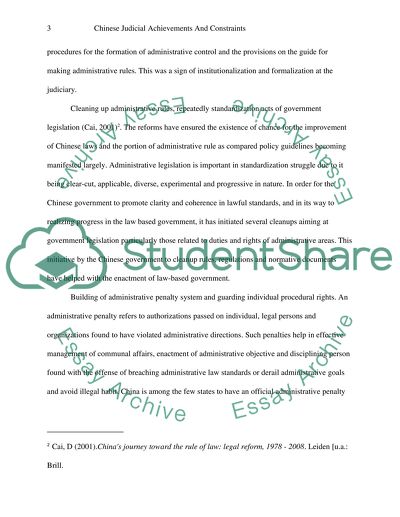Cite this document
(“Chinese Judiciary Achievements Essay Example | Topics and Well Written Essays - 3000 words”, n.d.)
Chinese Judiciary Achievements Essay Example | Topics and Well Written Essays - 3000 words. Retrieved from https://studentshare.org/law/1450609-in-line-with-chinayies-economic-reform-the-chinese
Chinese Judiciary Achievements Essay Example | Topics and Well Written Essays - 3000 words. Retrieved from https://studentshare.org/law/1450609-in-line-with-chinayies-economic-reform-the-chinese
(Chinese Judiciary Achievements Essay Example | Topics and Well Written Essays - 3000 Words)
Chinese Judiciary Achievements Essay Example | Topics and Well Written Essays - 3000 Words. https://studentshare.org/law/1450609-in-line-with-chinayies-economic-reform-the-chinese.
Chinese Judiciary Achievements Essay Example | Topics and Well Written Essays - 3000 Words. https://studentshare.org/law/1450609-in-line-with-chinayies-economic-reform-the-chinese.
“Chinese Judiciary Achievements Essay Example | Topics and Well Written Essays - 3000 Words”, n.d. https://studentshare.org/law/1450609-in-line-with-chinayies-economic-reform-the-chinese.


